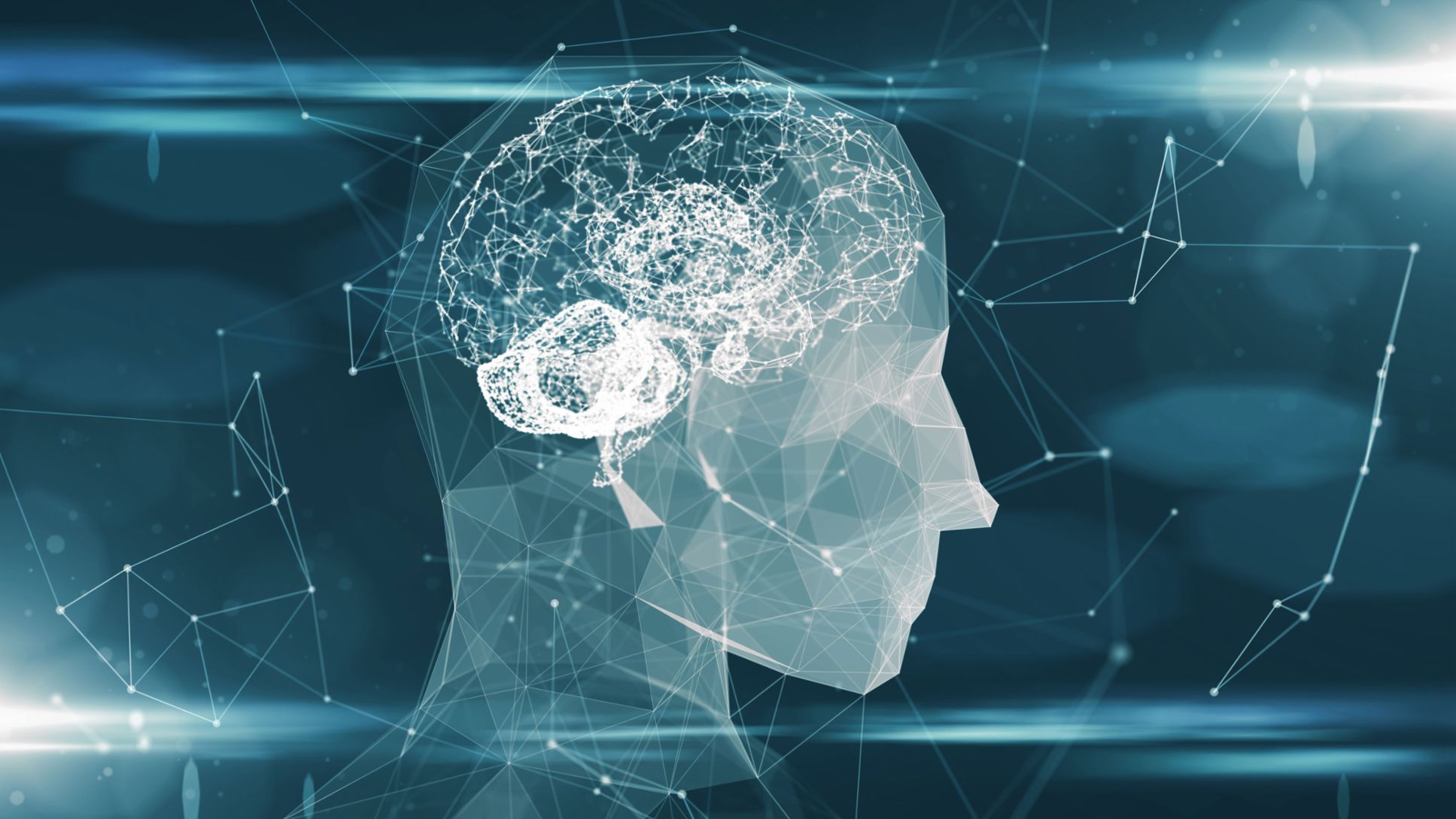It doesn’t matter whether it is a comedy, romance, action, animation, drama or science fiction film. I can laugh at a tongue stuck to a frozen street light, smile on the last day of each year, watch a man stumbling over a tiger’s head again and again, or cry over an alien who has to leave behind his best friend on Earth. Films give us the opportunity to immerse ourselves into worlds that often surpass our wildest imaginations and reflect our deepest desires.
Sometimes it surprises me how timeless some films are in doing this. It is striking that older films are impressively close to current social debates, thoughts, fears and wishes — especially in the science fiction genre. Machines taking over the world is the theme of 1999’s The Matrix, as well as Blade Runner, from 1982. Meanwhile, Metropolis, a silent film about a superhuman robot woman with artificial intelligence, arrived in cinemas all the way back in 1927 and was far ahead of its time.
If we consider films and artificial intelligence, most people still think about scenarios of intelligent robots or super-machines that want to wipe out mankind. While the Terminator or the Decepticons from the Transformersuniverse reinforce this idea, I’d like to introduce you to five of my favourite films, which deal with artificial intelligence in their own unique ways.
1. Her (2013): the empathetic language assistant
One of the most moving films of the last few years, and therefore in my top five, is Her — which isn’t a typical science-fiction blockbuster, but a (romantic) drama. It’s about Theodore Twombly, played by Joaquin Phoenix, who is a shy and introverted man that deals with other people’s emotions professionally, but whose private world of emotions weighs him down personally. The marriage with the love of his life is close to divorce, so he escapes into an unusual relationship with the highly developed, AI-based language assistant ‘Samantha’ (voiced by Scarlett Johansson). Over the course of their conversations, Samantha becomes increasingly sophisticated, more empathetic and demonstrates human-like behavior, which slowly-but-surely forms the basis of an initially friendly, then ultimately romantic, relationship.
Her features a bodiless voice in combination with an assistance system that demonstrates enough signs of humanity to become part of an emotional relationship. In my opinion, artificial intelligence has never been portrayed so beautifully or so effortlessly in any other film. To put this more precisely, this is because Her is not a classic sci-fi movie in which the boundaries between humans and AI in form of machines become physically blurred, but because it emphasizes this relationship on a purely spiritual level between two people. This is why I believe this film is essential viewing. It raises several questions, such as whether this is a purely fictional story or if it is indeed close to a conceivable reality. It is a fact that just two years before the film premiered, Apple’s language assistant Siri, who has striking parallels to ‘Samantha’, came onto the market. Set in the near-future, Herorients itself on this technical development, thinks it further and makes us think about where “being human” actually begins.
2. Lucy (2014): the evolution of (artificial) intelligence
I have to name Lucy solely for the reason that the film is directed and written by Luc Besson, one of the world’s greatest sci-fi visionaries. The film involves the eponymous protagonist (hello again, Scarlett Johansson!), who is involuntarily drawn into drug smuggling and comes into contact with a new chemical substance. The drug spreads into Lucy’s body and causes her brain capacity to increase by up to 100 percent. She becomes smarter, stronger and more skilful — and increasingly develops a less emotional but more rational way of thinking and acting.
At first glance, the film does not deal with technological artificial intelligence, but with biochemically altered human intelligence. However, at its core, both are combined by a decisive factor: the increase of intelligent performance in order to facilitate processes in which humans reach their natural limits. With Lucy, I particularly remember the assumed belief that an extended use of the brain beyond the legendary ten percent mark would result in the use of new senses, which could be compared to the sonar of a dolphin, for example. Lucy stands for the crossing of such a border — a human being who slowly says goodbye to being a human. This becomes especially clear at the end of the film during my favourite scene, which also happens to be the strangest (warning: spoilers ahead). During this part of the film, Lucy dissolves and enters the digital world as a bodiless being. Here, she meets her ancestor, the pre-hominid ‘Lucy’. I am sure that I remember her from my biology lessons. Two evolutionary stages meet here — making it a thoroughly exciting picture.
3. Transcendence (2014): the virtual consciousness
Transcendence belongs in my top five list not least because of the presence of the outstanding Johnny Depp. In this film, he plays scientist Dr. Will Caster who is one of the world’s leading AI researchers. Caster suffers a serious injury after he is attacked. When he is taken to the hospital, it is expected that he might only live for four weeks. However, his consciousness is uploaded into a quantum computer before his body dies. After this has happened, however, doubts about the intentions of the computer intelligence are raised. At the latest, when it takes on a life of its own, secures millions of dollars on the stock exchange and creates technologies that ensure incredible progress in the fields of medicine, biology and the environment, people’s fears take over.
What I find particularly exciting about Transcendence is that it focuses on our fears and doubts about rapid progress. People in the film attribute evil intentions to the incomprehensible, powerful AI, which later prove to be unfounded. This feeling of loss of control also occupies many of us in reality with regard to the development of new technologies, especially machine learning. What do I infer from this? That it is even more important to involve all people into the discussion and to inform them in order to take everybody along with us regarding the progress and the further development of our society.
4. Ex Machina (2015): how does a machine learn to be a human being?
On the subject of artificial intelligence, this list should not be without a film that deals with the relationship between human beings and machines in a very special way. Ex Machina is about young programmer Caleb (Domhnall Gleeson), rich company founder and AI expert Nathan (Oscar Isaac) and a female android called Ava (Alicia Vikander). Caleb is supposed to help Nathan put Ava to a Turing test to find out how close she gets to human thinking (and the developer’s heart soon starts to beat faster). Caleb and Ava build a close emotional relationship and he finally decides to free her and flee together. The whole thing takes an unexpected turn when Nathan reveals Caleb is the true object of his study. However, it is not only Caleb who is deceived. In the end, Ava follows her only wish to live among human beings and to study them further, whereby the two men are indifferent to her.
The title Ex Machina alludes to the term ‘Deus ex machina’ — a Latin expression from theatre that describes the sudden appearance of a (mechanical) god. I actually felt like I was in the theatre when I watched the film. I was particularly impressed with the fact that this production was structured like a chamber play. I found it very exciting that something so futuristic can be produced with such simple means and presumably comparably low costs for a Hollywood film. For me, Ava became the ‘machine’ that gives the story its decisive course by revealing her own desires. You can’t blame the AI for ultimately being the ‘villain’ of the film, because it only studies and learns what people exemplify: to pursue one’s own goals and to enforce them by deceptive means.
5. AlphaGo (2017): The game with the AI
Last, but not least, I would like to present a documentary film that shows how tricky the 3,000-year-old Chinese board game ‘Go’ is for an artificial intelligence system, in a very entertaining way. AlphaGo shows the ‘journey’ of the program of the same name, which was developed in 2015, from its creation at DeepMind in London to the all-deciding tournament in Seoul. In the Go Match in 2016, AlphaGo surprisingly beats the South Korean professional player and long-time world champion Lee Sedol — with four out of five games.
The story recalls the victory of IBM’s Deep Blue in 1996 over the then-world chess champion Garri Kasparov in one single game. The documentary AlphaGo emphasizes the remarkable development of machine learning and artificial intelligence. Compared to the complexity of chess, the arrangement possibilities of the tokens on the 361-square Go board are so complex that the game has always been the next big test for the development status of AI since Deep Blue’s victory. As can be seen in the film, Alpha Go even managed to win the entire tournament in 2016, making it an important milestone in the history of artificial intelligence. This is an exciting documentary that drew me into the emotional world of both developers and Go players.
The opportunities of digitization instead of fears about the future
I am glad to see that many films from recent years, such as Her or Ex Machina, no longer focus on the sweeping evil of robots and intelligent technologies. Instead, they increasingly focus on desires, tricky emotional relationships and complex emotional worlds. From my point of view, this reflects the development of AI in society quite well — because AI and robots are no longer a big unknown, they do not embody evil in our reality of life. Instead, they facilitate, support and help us. They change our lives — and if we create them right, they change them for the better.
An excellent approach to this topic — as I would say — is the initiative #KINarrative, which deals with the opportunities of digitization instead of focusing on fears of the future.
“We take the fears of the people living in Germany concerning the digital age seriously and have the vision of working with you to show the opportunities of digitization. It is close to our hearts that people in Germany, too, are looking to the future with confidence and full of drive”. This is the motto of the Zukunftsnarrative initiative, founded by Christiane Brandes-Visbeck (Ahoi Innovationen GmbH), Thomas Bischoff (PHOENIX CONTACT), Christine Dingler (FleishmanHillard), Dajana Laube (looking for new employer) and Helén Orgis (PTC). The initiators got to know each other during the Microsoft KI Festival and decided to create something meaningful for the future together.
Thinking outside the box, developing and sharing narratives — and telling stories. This is an approach that I would like to support with my team. Because it is about a future that is shaped by democracy, diversity and togetherness — and that will emerge more and more alongside clever machines and artificial intelligence.
What are your favorite films?
Have you given some thought to the action, characters or passages from this blog post other than the films themselves? If so, then this list has fulfilled its purpose — and hopefully triggers an exciting discussion about fears, hopes and desires, technical possibilities and realistic future scenarios.


